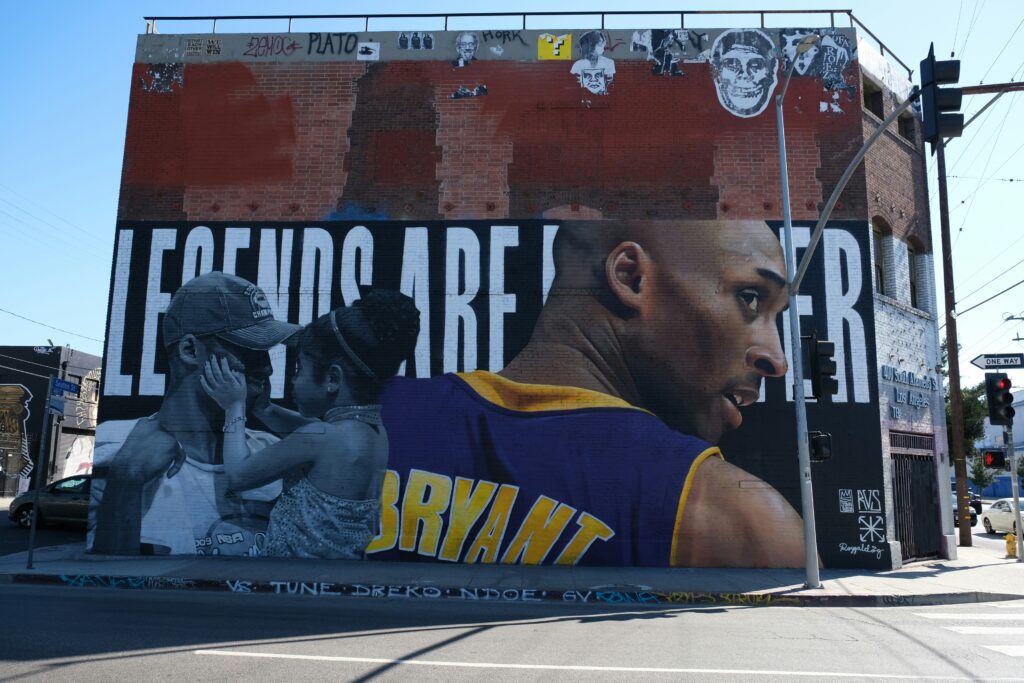
Kobe’s Mamba Mentality, which he described as “just trying to get better every day” is an effective approach to bettering our relationships. It’s about putting in the work to achieve greatness. Read on for six lessons Bryant can teach us in social connection.
I will never forget the call I got from my older daughter Erica, telling me that Kobe Bryant, his 13-year-old daughter Gianna, and seven others had perished in a helicopter crash. It was January 26, the day after Erica’s birthday, and we were still riding the high from her special day. But that call turned our joy into profound sadness.
Five years later, in 2025, new documentaries about Bryant are appearing on major networks like CNN and Tubi. These reflections give us a chance to revisit his extraordinary life, his accomplishments, and, most importantly, the deep love he inspired in others.
While Bryant is best known for his basketball career and the legendary Mamba Mentality that fueled his relentless pursuit of greatness, one of the lesser-discussed aspects of his legacy is how he understood the importance of relationships and social connection. He knew that good relationships were not just a path to success but the foundation of a meaningful life.
As we reflect on Bryant’s life, we can draw valuable lessons on how social connection and relationships help us navigate our personal and professional journeys. Here are a few key lessons we can learn from his Mamba Mentality as applied to building strong, lasting relationships:
- Relationships are the foundation of resilience
Bryant didn’t just focus on his own success—he built a team around him that helped him achieve greatness. From his coaches and teammates to his family, Bryant knew that true strength lies in a solid support system. His Mamba Mentality was fueled by a belief in collective effort and collaboration. Even at the highest levels of competition, he worked to strengthen his relationships, trust his teammates, and lean on his support network.
Off the court, Bryant often spoke about how his wife, Vanessa, and his daughters provided him with the emotional resilience to handle challenges. They didn’t just support him—they kept him grounded.
Lesson: Social connection provides us with emotional and mental resilience. The people we surround ourselves with—our family, friends, mentors, and colleagues—give us the strength to push forward.
- Quality connections matter more than quantity
Bryant’s approach to relationships was about depth, not numbers. He didn’t just build connections for networking; he sought meaningful, authentic relationships with people who truly mattered. After retiring from basketball, he dedicated more time to his family, recognizing that time spent with loved ones was more valuable than any accolade.
Lesson: It’s not about how many people are in your life, but the quality of those relationships. Deep, supportive connections will have a far greater impact on your well-being than many shallow ones.

- Lead by example in your relationships
Bryant was known for his leadership on the court, but what made him truly impactful was his ability to lead by example off the court. He set a standard for being a good teammate, friend, and family member. Whether mentoring younger players or spending time with his daughters, Kobe showed that leadership is about more than success—it’s about uplifting others.
After his basketball career, Kobe’s commitment to his daughters and mentoring young athletes—particularly women in sports—showed that leadership extends far beyond the game.
Lesson: Leadership in relationships is about kindness, encouragement, and support. It’s about inspiring others to grow, thrive, and connect in meaningful ways.
- Show up for the people you care about
Bryant was known for his unwavering commitment to his craft, but he was also dedicated to showing up for his loved ones. Despite his packed schedule, he made time for his daughter Gianna’s basketball games and for his family. He wasn’t just physically present; he was fully engaged, demonstrating that true strength in relationships comes from consistency, not grand gestures.
Lesson: Showing up—being present and engaged—is one of the most powerful ways to nurture meaningful relationships. Whether it’s a simple phone call or quality time, showing up matters.
- Give and receive support
Bryant didn’t just take support from others—he gave it in return. His relationships with teammates, coaches, and family were built on mutual support. Off the court, he was a loving husband and father who poured his energy into his family. And in return, his family’s love and support helped him stay focused and balanced.
Lesson: Relationships thrive on mutual support. Giving as much as you receive strengthens your bonds and builds trust.
- Make social connection a priority, not an afterthought
Kobe’s story reminds us that social connection shouldn’t be something we squeeze in between work and life—it should be a priority. Despite his dedication to basketball, he made intentional time for his family. He understood that success in one area of life means little without balance in others.
The relationships you nurture today—whether with friends, family, or colleagues—will be the ones that provide joy, comfort, and strength as you pursue your dreams.
Lesson: Make time for the people who matter most. Invest in relationships that bring you happiness and fulfillment.
Final thoughts: social connection and the Mamba Mentality
Kobe Bryant’s life is a powerful reminder that greatness isn’t just about what we achieve alone—it’s about the relationships we build along the way. While the Mamba Mentality taught us to push through challenges with relentless focus and discipline, Kobe’s commitment to his family and loved ones showed us that connection, love, and support are just as critical to a fulfilling life.
As we strive for success, let’s remember to nurture the relationships that matter most. It’s our social connections that shape the legacy we leave behind.
Also, for tips on incorporating more social connection into your life, check out my blog article on applying the Atomic Habits approach to building connections. You can read it HERE. Visit us at www.livinghappilyconnected.com for more tools and inspiration on how to improve your social health.

